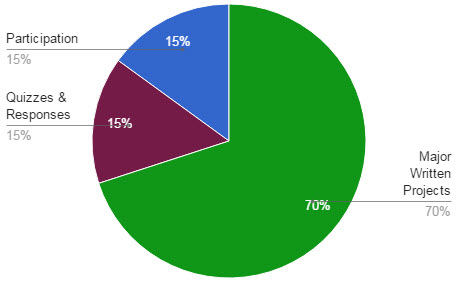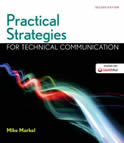English 3764 covers the principles and procedures of technical communication. This writing-intensive online course focuses attention on analyzing audience and purpose, organizing information, designing graphics, and writing such specialized forms as correspondence, instructions, and proposals. Junior standing is required.
Your Teacher
I’m Traci Gardner, an instructor in the English Department. I teach in the professional and technical writing program. In the past, I have worked at a small, educational software company in Austin, Texas, where I did technical writing, user support, and interface design. I did just about everything except coding, though I did learn to hack code a bit.
I have also worked as a web developer for a nonprofit, educational association (National Council of Teachers of English). I created and maintained flat-file and database-driven websites, wrote online and print content that was published on various association sites and in journals, and wrote blog posts and social media updates for the association.
Objectives
The English Department has established the following objectives. By completing English 3764, you will
- Analyze the audience or users of the written communication, including knowledge, experience, and work environment; consider needs of global audiences and people with disabilities.
- Conduct research appropriate to workplace problem solving, such as literature review, evaluation of online resources, interview, and site inspection.
- Interpret research findings with understanding of ethical and human implications.
- Select and apply appropriate ways of ordering information for specific effects, including hierarchical, chronological, and spatial arrangements.
- Use conventions of various workplace genres, such as proposals, instructions, correspondence, reports, and slide decks, with understanding of how the genre conventions can be used as heuristics and as principles of arrangement.
- Design visual representations of quantitative information to enhance accurate interpretation.
- Manage writing projects by planning and completing tasks according to a schedule.
- Collaborate with classmates in planning, researching, writing, revising, and presenting information.
- Write accurately and clearly.
- Apply principles of effective visual design for print and electronic presentation.
- Present technical information orally.
Required Resources
Resources to Bookmark |
|
|
|
Resources to Buy, Borrow, or Find |
|
|
|
Course Requirements and Assessment
Your course grade is comprised of three parts, shown in the following chart:

You will complete five major written projects (70% of your overall course grade), along with related drafts and other artifacts. You must complete five major projects to pass the course; however, you will have some choice in the projects you complete to ensure that they relate to your career field and interests.
You will take a quiz or write a response for each reading (15% of your overall course grade). You can choose whether to take multiple-choice quizzes or write responses.
Finally, you will participate (15% of your overall course grade) in discussions, peer review, and other informal activities. You will log your participation and write a self-evaluation at the end of the term.
All these activities are explained in more detail on the Assignments page of the course website.
Policies
Equal Access and Opportunity: If you need special accommodations in this course, please contact Services for Students with Disabilities (SSD) in 310 Lavery Hall (above the Turner Place Dining Center) during the first week of the term to ensure that you have the resources you need. The procedures and forms you need are also available on the SSD website. I am happy to work with the SSD staff to make sure that you have the support you need. Documentation from the SSD office should be sent to me by the end of the first week of class.
Communication Guidelines: Email is the best way to contact me. You can email me at tengrrl@vt.edu. I do not respond to students at any other address. I try to answer student email within 24 hours on weekdays and within 48 hours on weekends and holidays. See Communication Guidelines for more details.
Work Guidelines: All work and participation in this course is governed by the Undergraduate Honor System and the Virginia Tech Principles of Community.
The Undergraduate Honor Code pledge that each member of the university community agrees to abide by states:
“As a Hokie, I will conduct myself with honor and integrity at all times. I will not lie, cheat, or steal, nor will I accept the actions of those who do.”
Students enrolled in this course are responsible for abiding by the Honor Code. A student who has doubts about how the Honor Code applies to any assignment is responsible for obtaining specific guidance from the course instructor before submitting the assignment for evaluation. Ignorance of the rules does not exclude any member of the University community from the requirements and expectations of the Honor Code.
For additional information about the Honor Code, please visit the Undergraduate Honor System page.
Late Policy: My late policy includes a grace period that should cover most problems that come up, whether academic conflicts, illness, or a personal issue. You do not need to ask in advance or explain why your work is late. Just take advantage of the grace period, as explained below, for any work OTHER than the final self-evaluation:
- The due date is the day that your work is due. Work is due on Mondays, by 11:59 PM in this course. Every student has a 1-week grace period after the due date during which the project can still be submitted.
- The grace period occurs between the due date and the deadline. Work submitted during the grace period will be marked as late in Canvas; however, there is no grade penalty for work submitted during the grace period.
- The deadline comes 1 week after the due date and is the final moment that Canvas will accept a project. You will receive a zero for any project that is not submitted by the deadline. There are no extensions on deadlines.
Final Self-Evaluation: Your self-evaluation will count as the final exam for the course. There is no grace period or make-up option for your final self-evaluation. Your final exam must be submitted by the due date (11:59 PM on Monday, December 12) so that I can turn course grades in on time. You will receive a zero if your final self-evaluation is not submitted on time.
Religious Holidays: Please take advantage of the grace period explained in the Late Policy section above if the due date for any work in this class coincides with a religious holiday that you celebrate. Please let me know before the event if the grace period will not be adequate.
Missed Work: If you miss a deadline completely because of an illness, death in the family, or family emergency, see the Student Advocacy page from the Dean of Students Office for details on how to document the situation. You must provide documentation within one week of any situation.
If you have an issue that affects your ability to complete the course, you may qualify for Academic Relief. For personal medical issues, contact the Schiffert Health Center, and for psychiatric or psychological issues, contact the Cook Counseling Center.
Backups: Save backups of all your work for this class. Maintain these backups in multiple places (your laptop, a flash drive, Google Docs, Dropbox). Printed backups can also be useful. Do not discard any files, notes, or other work until the term is over and you have received your final grade. Be sure that you maintain backups so that you can continue your work when you encounter computer problems. If you need assistance with your computer, check with InnovationSpace or Customer Support Center (4Help).
Program Assessment: Please note that the Department of English may use your written work in its assessment of its teaching and learning goals. In such cases, your name will be removed and your work assessed anonymously. Your work will not be shared with any individual outside of the department. It will be used strictly to help the department offer students the best possible academic experience.
Grade Scale: I use the default Virginia Tech grade scale for Letter Grades with +/-. The Canvas gradebook manages all the mathematics. I do not round grades. I do not provide extra credit for people who have not met satisfactory performance goals.
| A 93–100 A- 90–92.99 |
B+ 87–89.99 B 83–86.99 B- 80–82.99 |
C+ 77–79.99 C 73–76.99 C- 70–72.99 |
D+ 67–69.99 D 63–66.99 D- 60–62.99 |
F 59.99 & below |
When Pass/Fail grades are used, a Pass grade is equivalent to an 85. Fail grades are entered as a zero, with no credit for the work.

 Markel, Mike. Practical Strategies for Technical Communication. 2nd Ed. Boston: Bedford/St. Martin’s, 2015.
Markel, Mike. Practical Strategies for Technical Communication. 2nd Ed. Boston: Bedford/St. Martin’s, 2015.